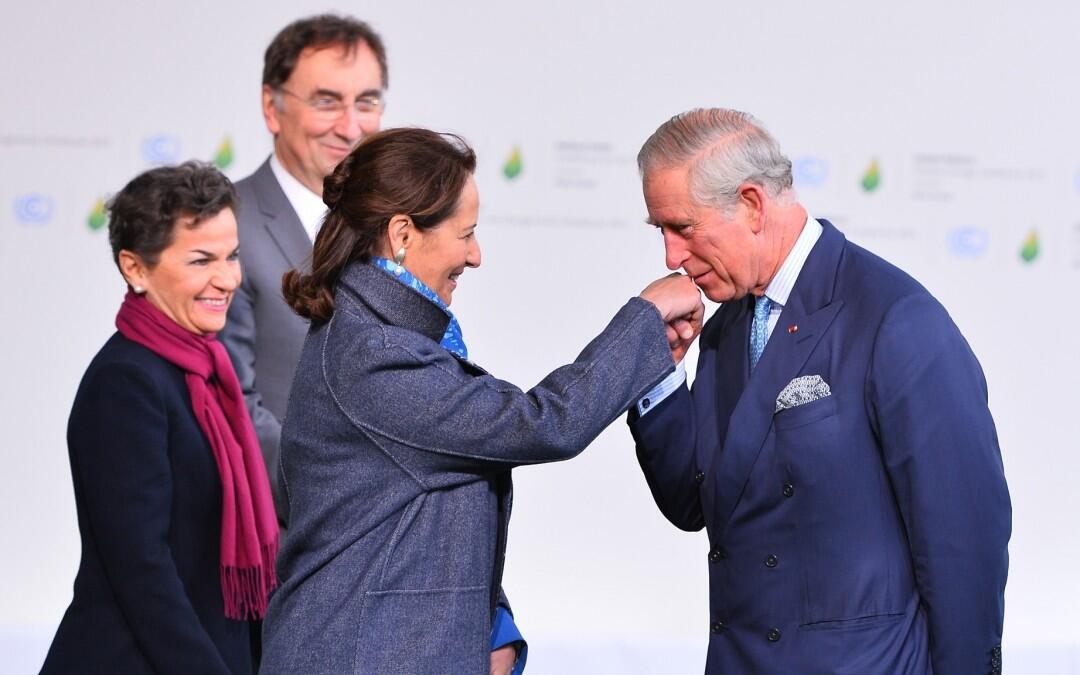World leaders gathered in Paris on Monday for the crucial UN summit on climate change to negotiate a treaty to limit global warming to 2C, the widely accepted temperature threshold to avert catastrophic disasters.
But in case the landmark conference was an insufficient reason to make you aware of this, then 147 heads of state and government were present to convey the weight of history with the power of language alone.
While we might like them to compete with their climate change targets, first we had to be patient and let them compete with their rhetoric. Here are the best of the bunch from a day of competing metaphors.
“The eyes of the world are upon us”
Laurent Fabius, French foreign minister and president of COP21,
got the speeches off to a promising start with the most overused metaphor of the day; happily wrung dry by politicians and activists alike.
The eyes of the world are upon and there are great hopes, it is therefore for us to meet our responsibilities head on so that on 11 December we can say the world the four words the world is waiting to hear: our mission is accomplished.
I have my #eyesonParis with @oxfamcanada for a #climatechange deal that puts people hit hardest first. Do you? pic.twitter.com/TIBjrtiKUi
— Naomi Klein (@NaomiAKlein) November 24, 2015
Chinese president Xi Jinping took up the mantle too: “Tackling climate change is a shared mission for mankind. All eyes are now on Paris.”
Obama warned that it is not just eyes alive today that are watching but those from the future too. “Let there be no doubt. The next generation is watching what we do.”
But head of the UN’s climate change body Christiana Figueres had to step in to remind the conference that this particular metaphor is so much more than a metaphor. “The eyes of millions of people are on you, not just figuratively but literally,” she said.
Goodness knows how they would have coped had they known that extra-terrestrial eyes were upon them too.
From space we are privileged to see the beauty of Earth but also our impact on it’s environment. #COP21#YearInSpacepic.twitter.com/rCD3PIDIX5 — Scott Kelly (@StationCDRKelly) November 30, 2015
It rests on their shoulders
Not to be outdone, French president Francois Hollande wanted to make sure we realise that the politicians are not only feeling the pressure in their eyes, but upon their shoulders too.
Ladies and gentlemen, the hope of all humanity rests on your shoulders. The greatest danger is not that we aim too high and we miss but that we aim too low and we hit it. Here in Paris we will decide on the very future of the planet.French president Francois Hollande, centre, with foreign minister Laurent Fabius at the COP21 conference in Le Bourget, Paris. Photograph: Philippe Wojazer/AP
Figures meanwhile was more concerned about hands than shoulders. “Never before has a responsibility so great been in the hands of so few,” she worried. But Prince Charles warned delegates that they should be concerned about some very particular hands: those of French cheesemakers. Accepting that others might think it “silly” he revealed his fears: “In a microbe-free, progressive and genetically engineered future, what hope is there for the old-fashioned Fourme d’Ambert, the mal-formed Gruyere de Comte or the odorous Pont L’Eveque?” An observer on Reddit attempted to return some calm to the situation:
“Let’s just imagine for a moment what we’d have to say to our grandchildren if we failed,” he pondered aloud. “We’d have to say it was all too difficult. They’d reply – well what was so difficult? Presumably we might have to say – well it was difficult to reach a binding agreement.” The grandchildren duly replied: “Why is it difficult to reach a binding agreement when in 2015 there were 75 countries across most of the continents of our world that already have legally binding climate change agreement – countries like Britain?” The dialogue continued, although the grandchildren in question did not appear to wonder why in 2015 subsides for solar energy and onshore wind were dramatically cut, why the flagship green homes scheme was given the axe or why much of the green investment bank was sold off, not forgetting the cancellation of a £1bn carbon capture and storage competition last week. Perhaps it was all too difficult. Back in the UK, the speech was not greeted with delight.
David Cameron: Angry about climate inaction in same way he is angry over cuts to Oxfordshire Council services?
— James Murray (@James_BG) November 30, 2015
“That husky must be turning in its grave,” quipped Richard Dixon, director of Friends of the Earth Scotland, in wistful remembrance of the prime minister’s iconic embrace with the dogs on Svalbard almost a decade ago.
But perhaps the wisest words of the day came from the end of Barack Obama’s speech.
“Let’s get to work,” he said.
Yes please, let’s.
Source: Emma Howard http://www.theguardian.com












